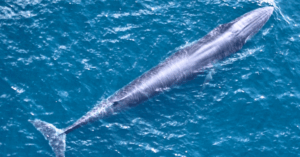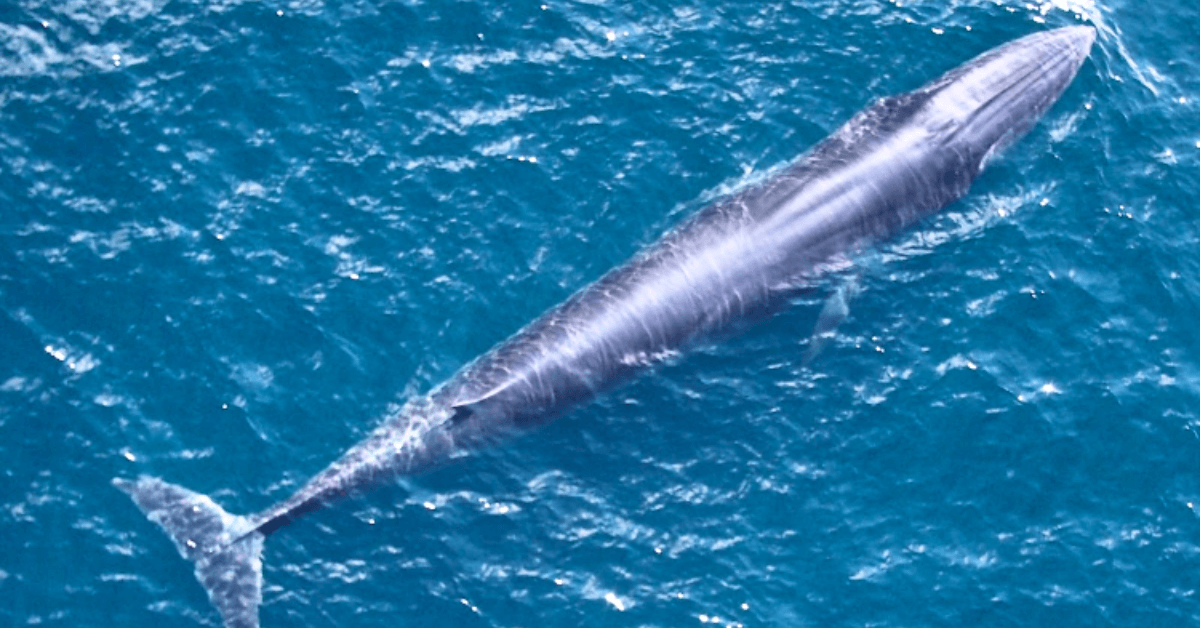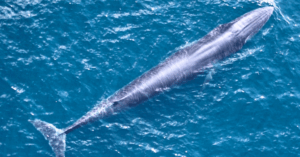
IMO Presents Gender Equality Award To Maritime Entrepreneur Karin Orsel
May 22, 2025
Lloyd’s Register Verifies Anemoi Rotor Sails’ Performance On TR Lady Kamsarmax
May 22, 2025

A new environmental review from the U.S. government has raised concerns over the survival of the critically endangered Rice’s whale, citing the serious threat posed by offshore oil and gas operations in the Gulf of Mexico.
The report, issued by the National Marine Fisheries Service (NMFS), warns that vessel strikes and oil exploration activities are likely to harm the small population of these elusive whales, estimated to number only around 51 individuals. The species, officially recognised in 2021 and named after marine biologist Dale Rice, is one of the rarest whales on the planet.
The whales primarily inhabit the De Soto Canyon off the coast of Florida but have occasionally been spotted farther west. Growing up to 12.8 meters in length and known for their pink-tinged bellies, they are highly vulnerable to human activity in the Gulf.
In response to the risk, the NMFS has proposed new rules requiring vessels in the area to reduce their speed and maintain a distance of at least 500 meters from any Rice’s whale sightings.
The updated report comes after a federal judge ordered the agency to revise an earlier, less thorough version that failed to fully consider the effects of oil spills and ship collisions on marine life. The judge set a deadline of May 21 for the revised findings, warning that delays could halt key oil and gas operations in the Gulf.
According to the new assessment, offshore oil and gas activities could kill up to nine Rice’s whales and severely injure three others over the next 45 years. The report also identified risks to five endangered sea turtle species, including threats from vessel strikes, underwater explosions, and pollution from oil drilling.
While energy industry groups like the American Petroleum Institute (API) and the National Ocean Industries Association (NOIA) welcomed the report’s release, they criticised its conclusion. NOIA’s president argued the findings contradict available scientific data and could create unnecessary uncertainty for companies operating in the Gulf.
On the other hand, environmental advocates say the report doesn’t go far enough. Earthjustice, representing a coalition of organisations including the Sierra Club, Center for Biological Diversity, Friends of the Earth, and Turtle Island Restoration Network, has filed a lawsuit claiming the protections outlined in the report fall short. The groups argue that even a single whale death, especially a breeding female, could bring the population to the brink of collapse.
The Gulf of Mexico, which President Donald Trump dubbed the “Gulf of America,” remains a hotspot for fossil fuel extraction. While the NMFS report attempts to balance industrial activity with the need to protect endangered species, conservationists argue the current measures don’t meet legal standards or reflect the urgency of the situation.
References: Mexico News Daily, Reuters
Source: Maritime Shipping News


